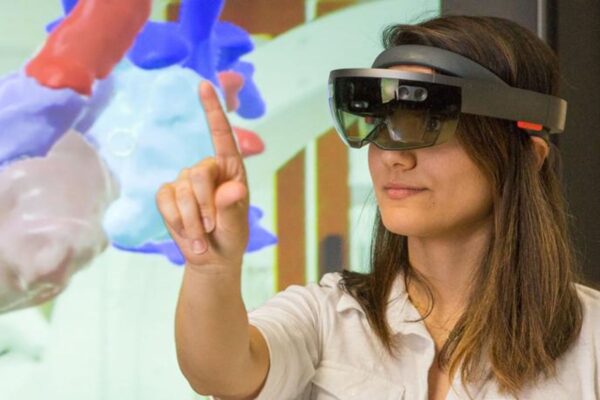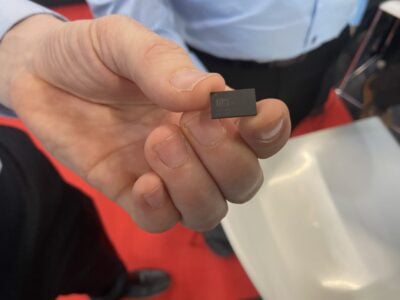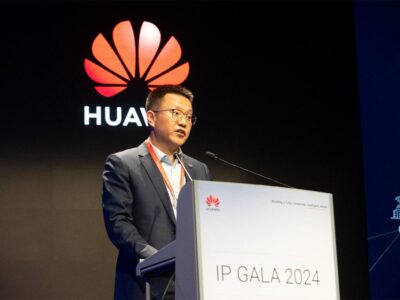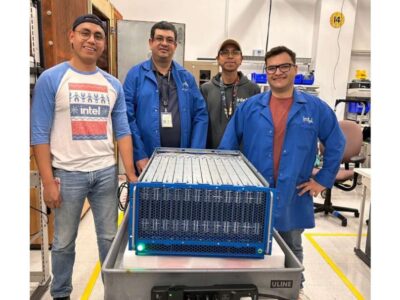
Publicly-funded VR/AR centre opens in Brooklyn
In partnership with the NYC Media Lab, Columbia is part of a consortium of New York City universities, including the NYU Tandon School of Engineering, CUNY, and the New School, that will administer the lab as a hub for translational research and innovation, startups, and job training.
Part of Mayor De Blasio’s New York Works plan, the RLab is funded by a $5.6 million investment by the New York City Economic Development Corporation and the Mayor’s Office of Media and Entertainment. The RLab is expected to create over 750 jobs for New Yorkers.
Mary C. Boyce, Dean of Columbia Engineering, spoke at the launch event and stressed Columbia’s commitment to advancing the state of the art in VR and AR technology through a diverse array of ground-breaking research.
“As a research institution with a teaching mission, Columbia has been focusing on VR and AR as an exciting new frontier that promises almost limitless possibilities for solutions that will contribute to society’s health, security, interconnection, and creativity,” said Dean Boyce. “We have many examples of faculty spanning departments and disciplines and working across our sister schools to address societal challenges with advances in VR and AR.”
The RLab will also manage a range of entrepreneurship programs to translate research from Columbia and other city schools to the market, as well as programs to help corporations adopt AR/VR technology, and an accelerator program backed by the venture capital firm Super Ventures.
We see the importance of building up a talent pipeline for the growing VR and AR industry, a field that we are only just beginning to see the possibilities of.
During opening remarks, Dean Boyce highlighted the work of several Columbia faculty members in AR/VR, in particular Steven Feiner, professor of Computer Science who has won several Media Lab awards at the organization’s annual summit and demo showcase. Feiner has developed AR devices for computer-aided surgery and worked with the Architecture School to use AR as a means for bringing historical documents to life. Dean Boyce also touched on opportunities in human health, such as the use of robotics and VR/AR in rehabilitation and the important role new materials will play in translating VR and AR technology to the marketplace.
Other speakers included representatives from partnering organizations: New York City’s Economic Development Council, the Mayor’s Office of Media and Entertainment, the Brooklyn Navy Yard Development Corporation, NYU Tandon School of Engineering, CUNY, and Super Ventures.
The city’s goals for RLab will be to support new ventures, increase access and expand the talent pipeline for the VR/AR industry, draw on the wealth of academic expertise in New York City to create the preeminent VR/AR research centre in the US, build up the VR/AR community across industry, academia, and institutions; and spur innovation.
The lab will operate out of Building 22 in the Brooklyn Navy Yard. When complete, it will house 16,500 square feet of co-working labs, classrooms, and studios.
Columbia Technology Ventures, the University’s technology transfer office, will be working with closely with the lab to commercialize research. A defining focus of the lab will be job creation and the center will work with CUNY Lehman College’s VR/AR Training Academy to develop a citywide VR/AR talent pipeline.
A release from NYCEDC cites that the U.S. will lead the way in spending on AR/VR services, up to $215 billion in 2021 from $11.4 billion in 2017.
 If you enjoyed this article, you will like the following ones: don't miss them by subscribing to :
eeNews on Google News
If you enjoyed this article, you will like the following ones: don't miss them by subscribing to :
eeNews on Google News



